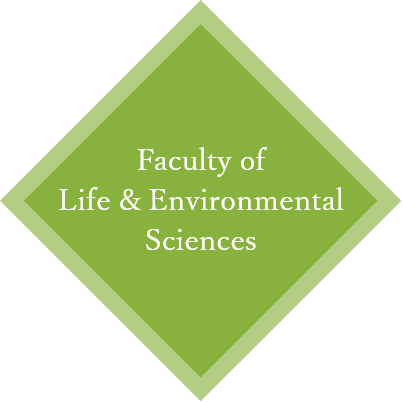There are 3 departments where students study animals, life, and nature.
Expand your perspective to understand life and contribute to society.


There are 3 departments where students study animals, life, and nature.
Expand your perspective to understand life and contribute to society.
In order to develop people who have high knowledge and skills of life science and who can return them to society, we provide education with a fulfilling curriculum, abundant specialized lectures from the first year and abundant practical training, which is the greatest feature of TUS.
In addition, in accordance with the philosophy of TUS, we aim for education in which we can foster as many students as possible who not only acquire qualifications and skills, but also aim for harmony between people and nature, have excellent ethical standards, and can lead the next generation.

You can contemplate "what is life" by using the extensive experimental and research facilities in the spacious Tokyo West Campus.
This course has laboratories where students can study various aspects of life, from genetic chemistry to microorganisms and vertebrates, and can deepen their understanding of the essence of life and its applications.
In the future, it will be possible to play an active role in fields such as biotechnology, pharmaceuticals, and food.
We train life science specialists who can contribute to the healthy lives of people and the creation of an environmentally-friendly society.

Gene therapy / regenerative medicine / bio pharmacy / functional food / advanced cosmetics, environmental pollution / biomass energy.
This course is for students who aim to be researchers and engineers involved in these fields of research and development.
Various lectures on "life" and "health" are available, and students can deepen their specialty according to their interests while learning a wide range of basic skills and knowledge.
It also features a curriculum that allows students to acquire practical skills through abundant experiments and practical training.
Students can aim to become a life science specialist in a fulfilling learning environment.

A "clinical engineer" is active in the forefront of medical care, having both knowledge and technology in engineering and medicine.
In this course, we provide a curriculum for the national examination for clinical engineering.
Furthermore, we aim to train people with a wide range of specialized knowledge and education to respond to increasingly sophisticated medical fields.
In the 4th year, students will continue their studies, such as clinical training for the national examination, at our partner school, Teikyo Junior College, with the status of a student of this university.